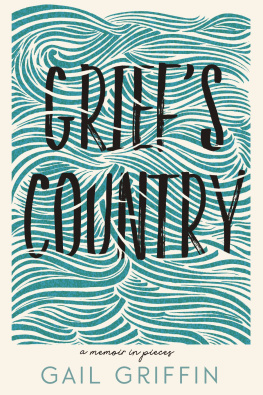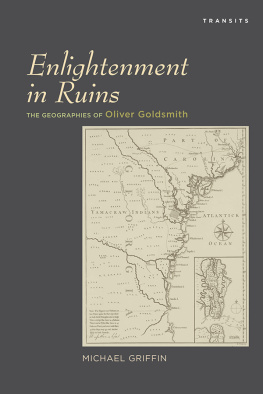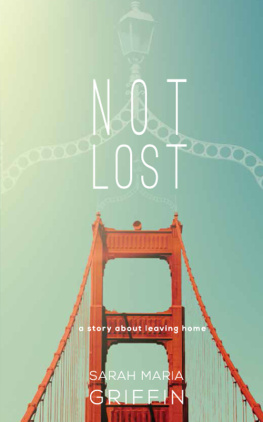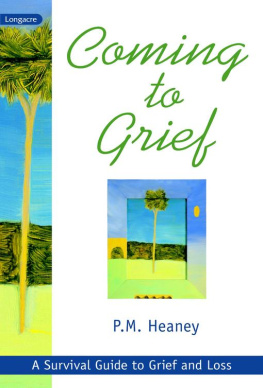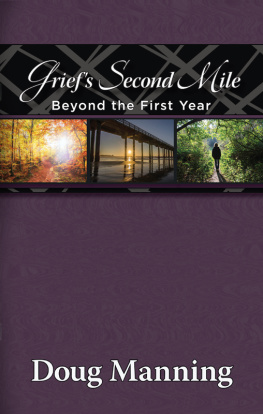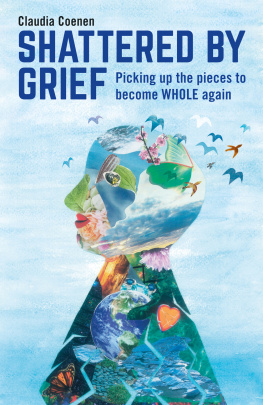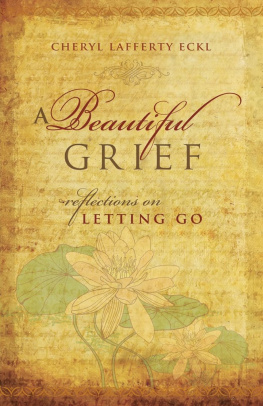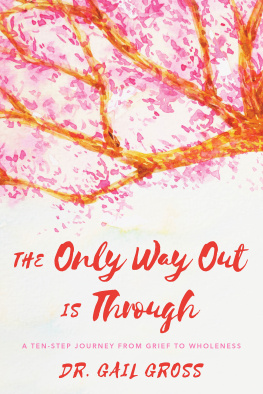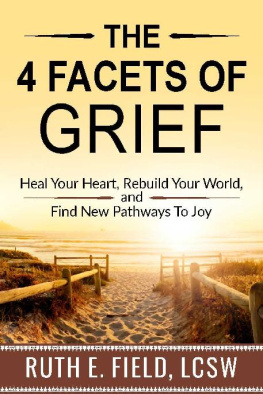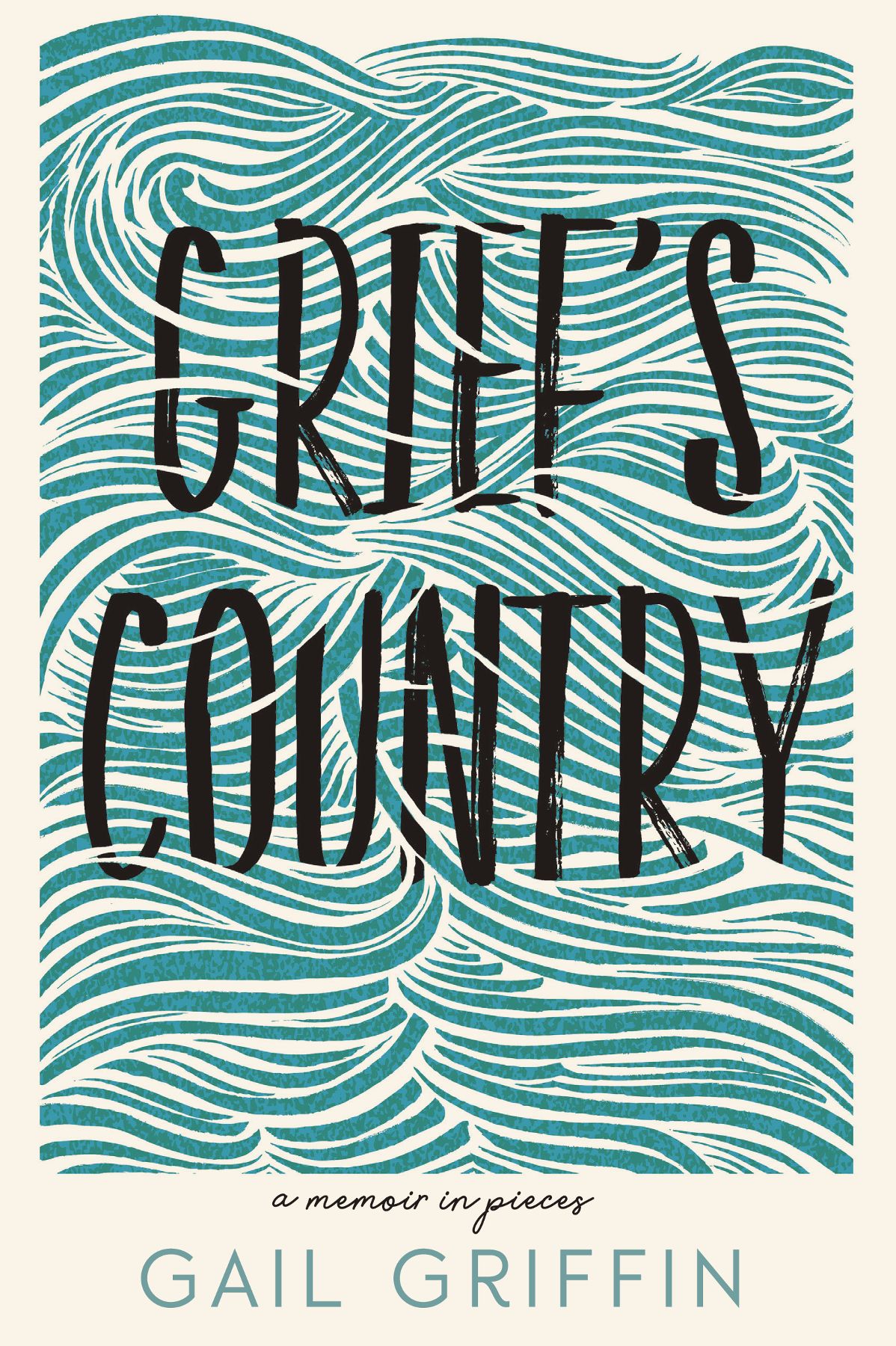
Praise for Griefs Country
Griefs Country is a powerful and lyrical meditation upon loss. It is also a celebration of those moments in our lives that redeem our mortality through their transient joys. Here, grief is deeply personal yet transcendently mythic, both heart-breaking and heart-mending. Griffin has written a remarkably honest, tragically beautiful memoir.
Sue William Silverman, author of The Pat Boone Fan Club: My Life as a White Anglo-Saxon Jew
A fiercely honest, deeply human examination of griefs gradations, shades, nuances, and degrees, as well as its life-altering consequences. An essential book for anyone who has lost a loved one or knows someone who has.
Michael Steinberg, founding editor of Fourth Genre: Explorations in Nonfiction
In Griefs Country, Gail Griffin embraces loss by navigating grief with an open heart. Griffin shares personal tragedy with such big-hearted courage that she lifts us up with her. Those who yearn for support will find tremendous comfort here. Griefs Country is profoundly beautiful.
Rene E. DAoust, author of Body of a Dancer
Gail Griffins lyrical Griefs Country is a deeply considered meditation on grief, grace, and surviving the unimaginable. Its a beautiful exploration of the human condition through the lens of loss.
Sarah Einstein, author of Mot: A Memoir
Griefs Country
Made in Michigan Writers Series
General Editors
Michael Delp, Interlochen Center for the Arts
M. L. Liebler, Wayne State University
A complete listing of the books in this series can be found online at wsupress.wayne.edu
Griefs Country
A Memoir in Pieces
Gail Griffin

Wayne State University Press
Detroit
2020 by Gail Griffin. All rights reserved. No part of this book may be reproduced without formal permission. Manufactured in the United States of America.
ISBN 978-0-8143-4739-3 (paperback); ISBN 978-0-8143-4740-9 (e-book)
Library of Congress Control Number: 2019955125

Publication of this book was made possible by a generous gift from The Meijer Foundation. This work is supported in part by an award from the Michigan Council for Arts and Cultural Affairs.
Wayne State University Press
Leonard N. Simons Building
4809 Woodward Avenue
Detroit, Michigan 48201-1309
Visit us online at wsupress.wayne.edu
To want to make a fire with someone,
with you,
was all.
Katie Ford, All I Ever Wanted
Contents
which should have been the first clue. She ambled
down the south aisle in her new cheap shoes
while the groom came down the north in the dark
blue suit men buy one of, for weddings and funerals.
Dinah Washington sang Its very clear, our love is here
to stayJesus, in a Greek play that kind of hubris
would get you castration or blinding or a raptor at the liver.
Instead everyone had omelets, made to order by a deft
and silent man behind a table in the great old mansion
on the hill overlooking the last day of the year.
A blizzard was on its way across the plains, and nobody
would get out. Meanwhile everyone smiled
and made their choices: spinach, gruyre, green onions.
Mimosas bloomed from the open bar. She flapped
and stumbled through it all: what was she doing here?
Who said her life had anything to do with strawberries
tipped in chocolate, ornate seating charts, Polish crystal
etched with names and date? Who was she kidding,
moving around the room, dazed and footsore
in those shoes, failing to see his eyes, him in the dark
suit, waiting for her to be done with this, the man standing
quiet in the cyclones eye, slowly disappearing?
I do not know much about gods; but I think that the river
Is a strong brown godsullen, untamed and intractable...
T. S. Eliot, The Dry Salvages
On my memorys retina is an open door, imprinted like a flash image. It is a pale frame around darkness, a picture of nothingness. I am in a warm golden-brown light, facing the door. On the other side is sheer unrelieved night. Out there a weird and fearsome world waits. I study myself standing there, occupying the final instant of Before, with a terrible knowledge just beginning to rise.
*
This story begins with a river.
It is a river of memory, though it might be memory not of what happened but of what I was told: I am floating down the Manistee River in what my family grandly called the Au Sable Float (named, I dont know why, for the other big river in northern lower Michigan), which consists of the inner tube of a tire covered with olive-drab canvas in which two leg holes have been cut. The float is tethered to my fathers waders by a rope. He is walking upstream, fishing for trout. My feet are pushing against the rippling current. I am maybe three or four.
By the summer of 1960, when I turned ten, my father was dead. That summer I was sent to a fifty-year-old camp for girls on a little crystalline lake among the pines southeast of Traverse City called Lake Arbutus. I would spend six summers there, taking me from ten to sixteen. Over those years my mother remarried, was widowed again, and remarried again; I inherited one set of stepsiblings and then another; I went from elementary school to junior high school to high school in three different cities and came home to three different houses with three distinct domestic cultures, three different father-men loudly or quietly determining our orbit. In that span of time the country went through a great cultural shift, and I went through puberty. In this whirlwind, those northern woods were the still place. In winter, downstate, I would imagine them silent, bare, filled with snow, and something in me feared they wouldnt be there in June. That they werethe same sunlight rippling through the spectrum of greens and breaking into diamonds on the lake, the soft, sandy soil, the smell of pineamounted to an assurance of continuity and the possibility of return. For eight weeks I ran and swam, shot arrows and rifles, rode horses, paddled and sailed. My arm and thigh muscles rounded, my skin browned and freckled, my hair went blond. The world outside, increasingly crowded with rock bands and makeup and social strata and fashion imperatives, faded; what was real was this island of girls in the woods.
Small groups of campers were selected for overnight trips. The littlest girls were bussed with their sleeping bags to the cherry farms on the Old Mission Peninsula, which bisects Grand Traverse Bay. In a subsequent summer you might get to spend a weekend on mysterious South Manitou Island. But when you were old enough and your canoeing skills were deemed sufficient, you were tapped for what was called The Manisteethree days and two nights on the river. After canoeing the calm lake waters, the river was jazzy, both easier and more challenging. In the stern, I loved shaping the green water with my paddle, working with and against the current. I remember the sun winking through the heavy canopy of July, the long, buzzing afternoons. In the bow, less busy, I studied the whorls and eddies of the waters where I had once trailed my feet.
Next page
